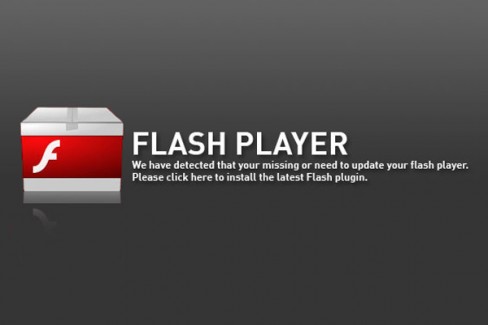Yesterday’s introduction of Chrome for Android can only be described as very significant, with this significance extending to the fact that the new mobile browser, still in beta, does not support Adobe Flash.
While our immediate reaction to this may have been one of surprise, as Android users often tout Flash support as its main advantage over its nearest competitor – Apple, it makes sense when considering Chrome’s ethos of “speed and simplicity”. If Android want to keep Chrome super-fast, getting rid of Adobe Flash is an important step.
Also, last November, Adobe announced it would no longer actively support Flash Player for mobile, effectively vindicating Apple’s long-held stance of boycotting the resource-intensive multimedia viewer. Android would then have to end Flash support at some point – in this case sooner rather than later.
Android’s current default browser still supports Flash. However, natural progression on the Android platform will see Chrome eventually becoming its replacement, further spelling the end for Adobe Flash – at least on mobile anyway.

I think they’re just holding back on Flash support for now so their beta tests won’t be confused by whether an issue exists with Chrome itself or with the interaction of Chrome and Flash, which are separate issues.
I think they’re just holding back on Flash support for now so their beta tests won’t be confused by whether an issue exists with Chrome itself or with the interaction of Chrome and Flash, which are separate issues.
I think they’re just holding back on Flash support for now so their beta tests won’t be confused by whether an issue exists with Chrome itself or with the interaction of Chrome and Flash, which are separate issues.
I think they’re just holding back on Flash support for now so their beta tests won’t be confused by whether an issue exists with Chrome itself or with the interaction of Chrome and Flash, which are separate issues.
I think they’re just holding back on Flash support for now so their beta tests won’t be confused by whether an issue exists with Chrome itself or with the interaction of Chrome and Flash, which are separate issues.
I think they’re just holding back on Flash support for now so their beta tests won’t be confused by whether an issue exists with Chrome itself or with the interaction of Chrome and Flash, which are separate issues.
I think they’re just holding back on Flash support for now so their beta tests won’t be confused by whether an issue exists with Chrome itself or with the interaction of Chrome and Flash, which are separate issues.
I think they’re just holding back on Flash support for now so their beta tests won’t be confused by whether an issue exists with Chrome itself or with the interaction of Chrome and Flash, which are separate issues.
I think they’re just holding back on Flash support for now so their beta tests won’t be confused by whether an issue exists with Chrome itself or with the interaction of Chrome and Flash, which are separate issues.
@Eli Fennell I’m not so sure. Adobe have released this statement which reads fairly conclusively – http://blogs.adobe.com/flashplayer/2012/02/flash-chrome-for-android-beta.html
I think they’re just holding back on Flash support for now so their beta tests won’t be confused by whether an issue exists with Chrome itself or with the interaction of Chrome and Flash, which are separate issues.
@Eli Fennell I’m not so sure. Adobe have released this statement which reads fairly conclusively – http://blogs.adobe.com/flashplayer/2012/02/flash-chrome-for-android-beta.html